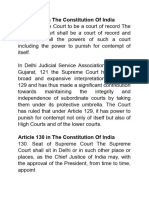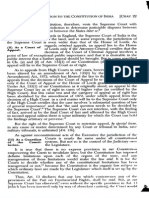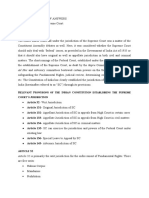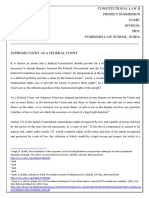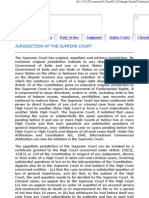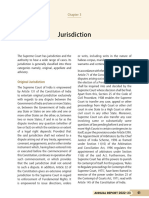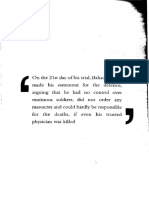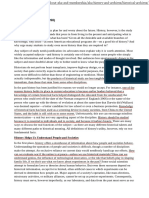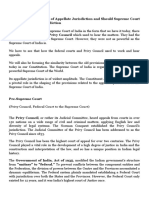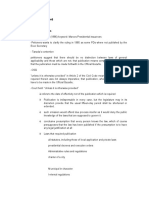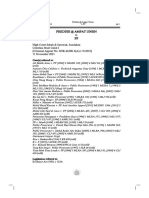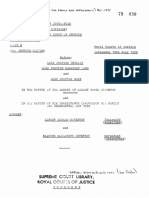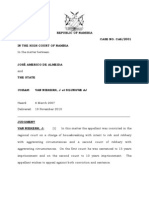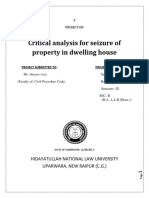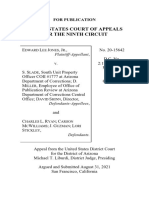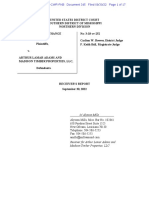0% found this document useful (0 votes)
125 views13 pagesAppellate Draft 1
The document discusses the appellate jurisdiction of the Supreme Court of India. It explains that appellate jurisdiction allows higher courts to review decisions made by lower courts and potentially overturn them if an error was made or the law was incorrectly applied. The Supreme Court has appellate jurisdiction over various types of cases from High Courts as outlined in Articles 132-134A of the Constitution. Its appellate role helps ensure consistency and the proper interpretation of laws across the legal system.
Uploaded by
Ujjwal GuptaCopyright
© © All Rights Reserved
We take content rights seriously. If you suspect this is your content, claim it here.
Available Formats
Download as DOCX, PDF, TXT or read online on Scribd
0% found this document useful (0 votes)
125 views13 pagesAppellate Draft 1
The document discusses the appellate jurisdiction of the Supreme Court of India. It explains that appellate jurisdiction allows higher courts to review decisions made by lower courts and potentially overturn them if an error was made or the law was incorrectly applied. The Supreme Court has appellate jurisdiction over various types of cases from High Courts as outlined in Articles 132-134A of the Constitution. Its appellate role helps ensure consistency and the proper interpretation of laws across the legal system.
Uploaded by
Ujjwal GuptaCopyright
© © All Rights Reserved
We take content rights seriously. If you suspect this is your content, claim it here.
Available Formats
Download as DOCX, PDF, TXT or read online on Scribd
/ 13







